Premium Only Content
![Jethro Tull - Aqualung (1971) [Full Album]](https://1a-1791.com/video/fww1/ec/s8/1/0/X/T/v/0XTvy.qR4e-small-Jethro-Tull-Aqualung-1971-F.jpg)
Jethro Tull - Aqualung (1971) [Full Album]
Aqualung is the fourth studio album by the British progressive rock band Jethro Tull, released on 19 March 1971, by Chrysalis Records. It is widely regarded as a concept album featuring a central theme of "the distinction between religion and God", though the band have said there was no intention to make a concept album, and that only a few songs have a unifying theme. Aqualung's success signalled a turning point in the career of the band, which went on to become a major radio and touring act.
Recorded at Island Records' new London recording studio, it was their first album with keyboardist John Evan as a full-time member, their first with new bassist Jeffrey Hammond, and last album featuring Clive Bunker on drums, who quit the band shortly after the release of the album. Something of a departure from the band's previous work, the album features more acoustic material than previous releases; and—inspired by photographs of homeless people on the Thames Embankment taken by singer Ian Anderson's wife Jennie—contains a number of recurring themes, addressing religion along with Anderson's own personal experiences.
Aqualung is Jethro Tull's best-selling album, selling more than seven million units worldwide. It was generally well-received critically and has been included on several music magazine best-of lists. The album spawned two singles, "Hymn 43" and "Locomotive Breath".
Tracklist:
0:00 Aqualung
6:36 Cross-Eyed Mary
10:44 Cheap Day Return
12:05 Mother Goose
15:58 Wond'ring Aloud
17:51 Up To Me
21:06 My God
28:16 Hymn 43
31:33 Slipstream
32:45 Locomotive Breath
37:09 Wind-Up
Jethro Tull
Ian Anderson – lead vocals, acoustic guitar, flute, production
Martin Barre – electric guitar, descant recorder
Jeffrey Hammond (as "Jeffrey Hammond-Hammond") – bass guitar, alto recorder, odd voices; backing vocals on "Mother Goose"
John Evan – piano, organ, Mellotron
Clive Bunker – drums and percussion
Additional personnel
Glenn Cornick – bass guitar (played with the band at rehearsals for the album in June 1970, some of which may also have been recording sessions – particularly early versions of "My God" and "Wondring Again/Wondring Aloud" – although he is not credited on the album)
John Burns – recording engineer
Dee Palmer – orchestral arrangements and conducting
Burton Silverman – album artwork
Terry Ellis – producer
-
![King Crimson - Red (1974) [Full Album]](https://1a-1791.com/video/fwe2/72/s8/1/g/w/g/z/gwgzz.0kob-small-King-Crimson-Red-1974-Full-.jpg) 40:00
40:00
Alex4Rock
8 hours agoKing Crimson - Red (1974) [Full Album]
14 -
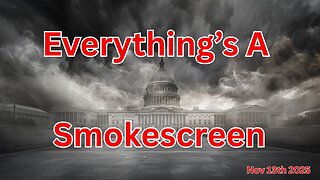 LIVE
LIVE
Wendy Bell Radio
4 hours agoEverything's A Smokescreen
6,157 watching -
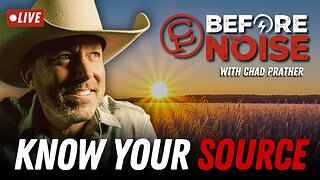
Chad Prather
15 hours agoWhat It Looks Like To Step Into Your Calling In Life!
23.3K27 -
 LIVE
LIVE
LFA TV
11 hours agoLIVE & BREAKING NEWS! | THURSDAY 11/13/25
3,702 watching -
 21:21
21:21
Jasmin Laine
18 hours agoTrump NAMED in Epstein Files—Poilievre LEAVES Canada’s Media in ASHES
31.7K56 -
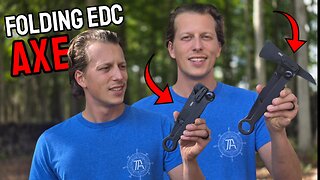 19:24
19:24
Tactical Advisor
18 days agoFolding EDC Axe | CRKT Provoke X
10.4K1 -
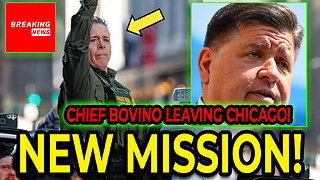 18:54
18:54
T-SPLY
17 hours agoDHS Sending More Federal Agents to Chicago - Pritzker Has Meltdown!
11.8K6 -
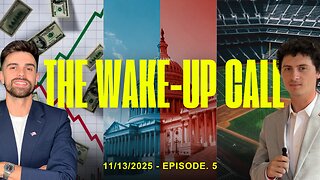 1:17:19
1:17:19
LIVE WITH CHRIS'WORLD
13 hours agoTHE WAKE UP CALL - 11/13/2025 - Episode 5
12.3K4 -
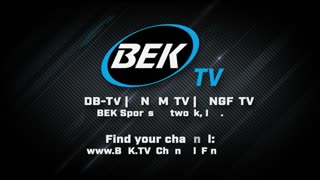 2:05:11
2:05:11
BEK TV
1 day agoTrent Loos in the Morning - 11/13/2025
14.3K -
 14:34
14:34
Lady Decade
19 hours ago $1.09 earnedSolving The Mystery of the Illegal Star Trek Console - Gaming History Secrets
12.8K8